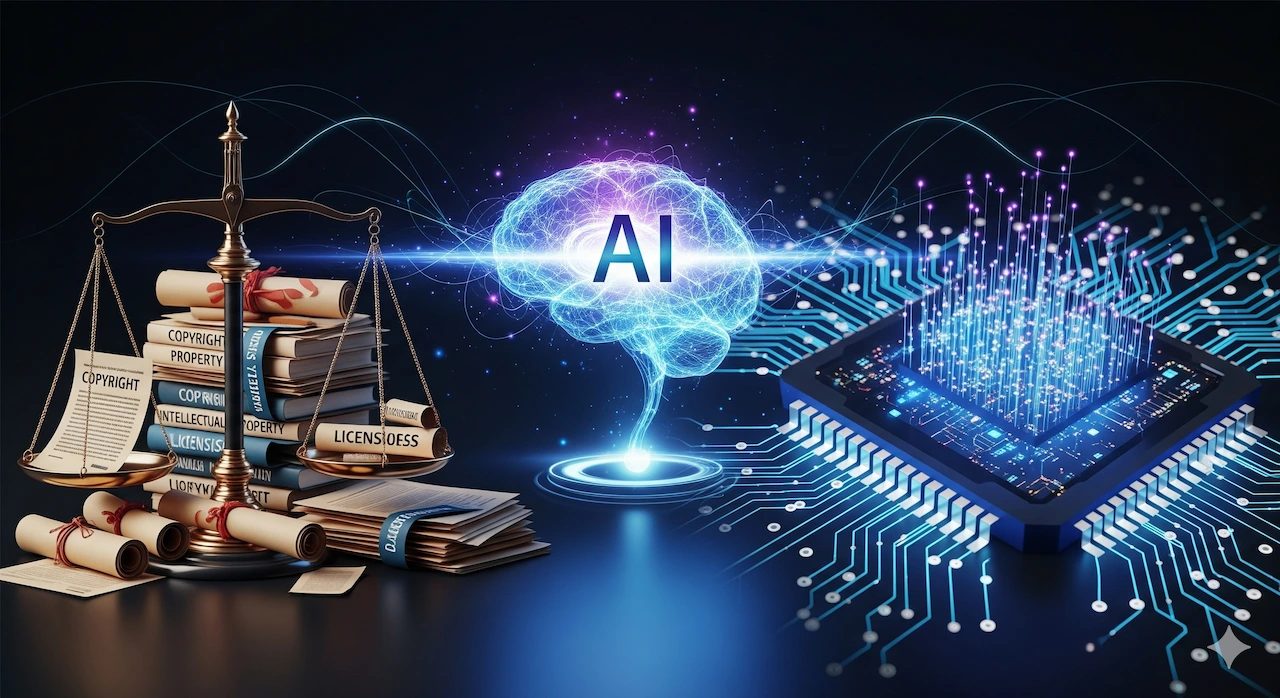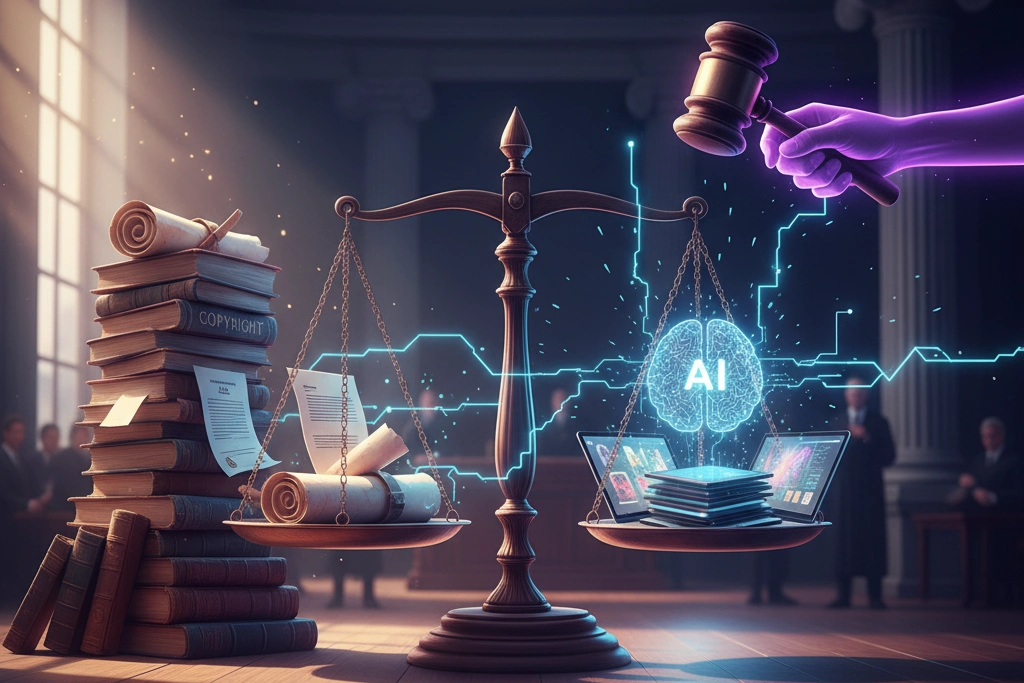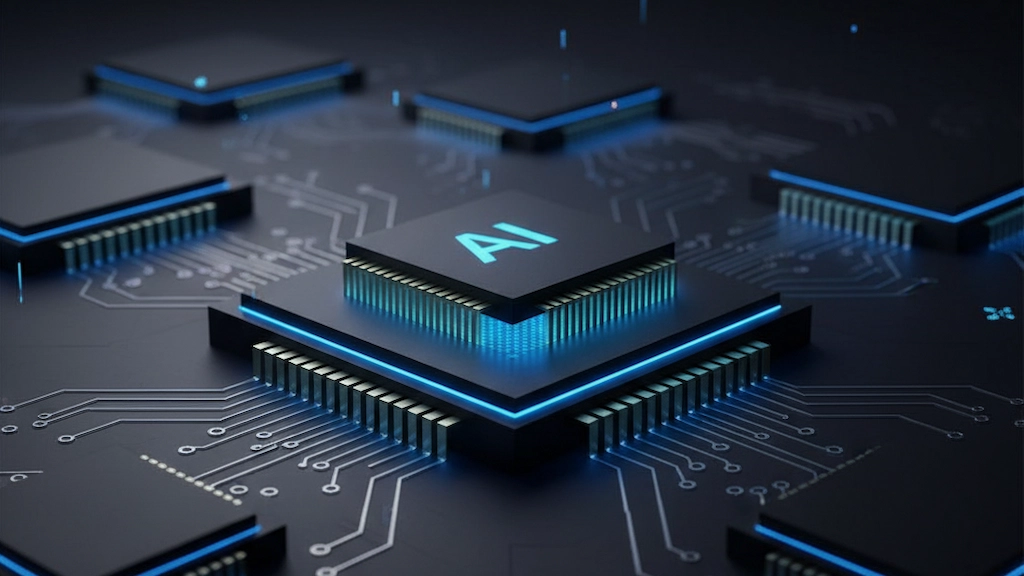GloNews10

Artificial Intelligence has moved from a futuristic concept to a cornerstone of our daily lives, powering everything from our search engines to our smartphones. But as AI’s capabilities grow, it is no longer just a technical marvel; it is now at the center of a seismic shift, creating a complex web of AI legal issues, ethical debates, and an intense hardware race.1 The global tech industry is now grappling with two intertwined questions: Who owns the content that fuels AI, and which company will build the most powerful hardware to run it?

The biggest headline in the tech news today is the legal reckoning over AI’s training data. For years, developers have been scraping vast amounts of information from the internet—including books, art, music, and code—to train their large language models (LLMs).2 Now, the creators of that content are fighting back in a major battle over AI copyright.
This legal battle reached a significant turning point with the recent settlement by AI startup Anthropic.3 The company agreed to a multi-billion dollar payout to resolve a class-action lawsuit from a consortium of authors. The lawsuit claimed that Anthropic’s AI models had been trained on their copyrighted works without permission or compensation, directly violating intellectual property rights.4
This landmark settlement sends a clear message to the entire tech industry: the free-for-all approach to data scraping is over. Giants like Google, Apple, and Microsoft are also facing similar lawsuits, forcing them to re-evaluate their data collection practices and the ethical implications of their AI development.5 The core issue revolves around a fundamental legal question: Is using copyrighted material to train an AI model “fair use,” or is it outright theft? The answer will likely shape the future of tech and creative industries for decades to come.

While the legal battles play out in the courts, a parallel revolution is happening on the hardware front. The AI wars are no longer just about who has the smartest software; they’re about who can build the most powerful and efficient AI chips to run that software. Major tech companies are now racing to integrate Artificial Intelligence directly into their devices, promising a new era of performance and capability.
Apple is reportedly doubling down on its AI strategy, with rumors circulating about the upcoming iPhone 17 series and the Apple Watch Ultra 3.6 The company is expected to introduce groundbreaking on-device AI features that will reduce reliance on cloud computing. This not only improves privacy but also makes apps and features faster and more responsive. Simultaneously, Apple is diversifying its manufacturing base away from China, a strategic move aimed at securing its supply chain and ensuring a stable future for its hardware production as global tensions rise.7
Tesla’s CEO, Elon Musk, continues to push the boundaries of technology with the announcement of a new “AI5 chip.”8 While Tesla is known for its electric vehicles, the company’s long-term vision is heavily dependent on AI.9 The AI5 chip is designed to power the next generation of self-driving cars and is part of Musk’s aggressive push to challenge established semiconductor giants like NVIDIA. This move highlights a growing trend where tech companies are designing their own specialized AI chips to gain a competitive edge in AI development.10
In the wearable tech space, Qualcomm has launched its new W5+ Gen 2 chip.11 This next-generation processor is specifically designed for smartwatches and other wearable devices.12 It promises a significant leap in performance, offering a more fluid user experience while dramatically improving battery life. This innovation is a direct response to the increasing demand for smarter, more powerful wearables that can handle complex AI tasks on a smaller scale, from fitness tracking and health monitoring to personalized insights.
The current climate of AI legal issues and hardware innovation signals a pivotal moment for the tech industry. We are witnessing a transition where Artificial Intelligence is no longer a separate service but is becoming an embedded, fundamental component of every device we use. The battles over AI copyright are forcing companies to become more ethical and transparent, while the hardware race is pushing the limits of what is physically possible.13
The future of tech will be defined by a delicate balance between blazing-fast innovation and ethical responsibility. As developers create more powerful models and engineers build more capable AI chips, society must work to establish new legal frameworks to ensure the technology benefits everyone. This revolution is not just about building better bots; it’s about building a more responsible and transparent tech ecosystem for the next generation.